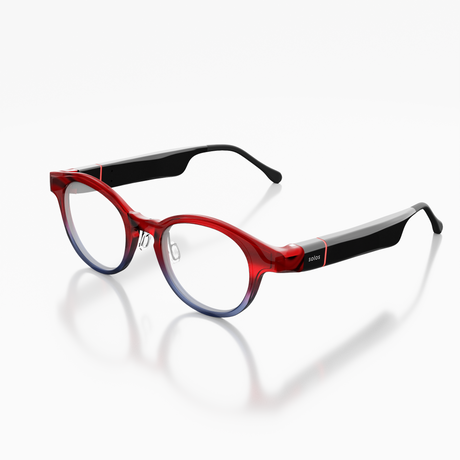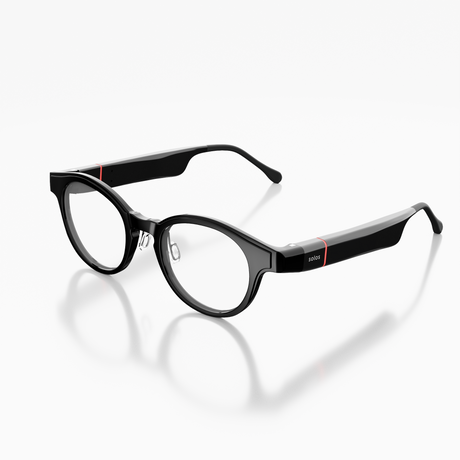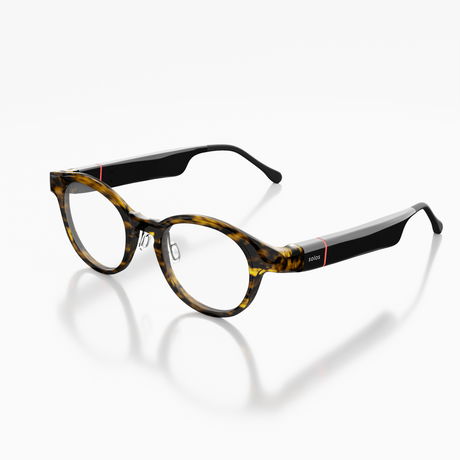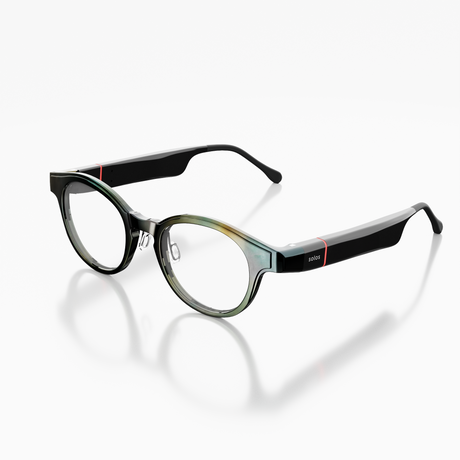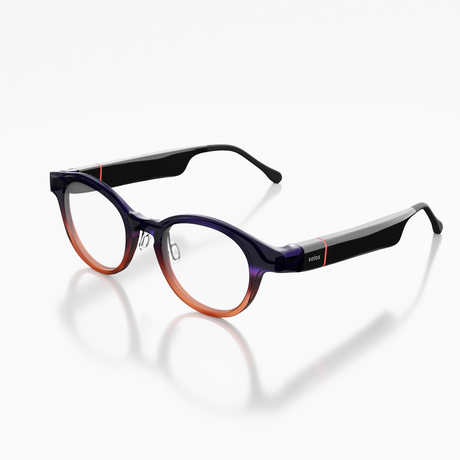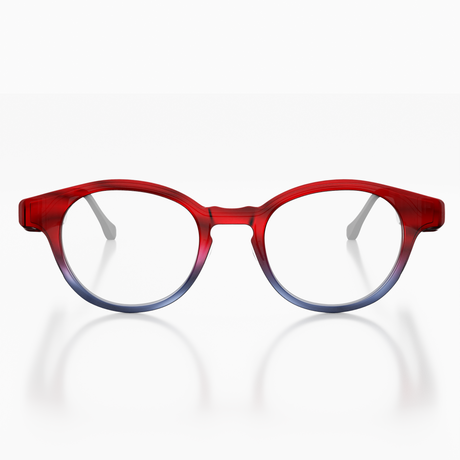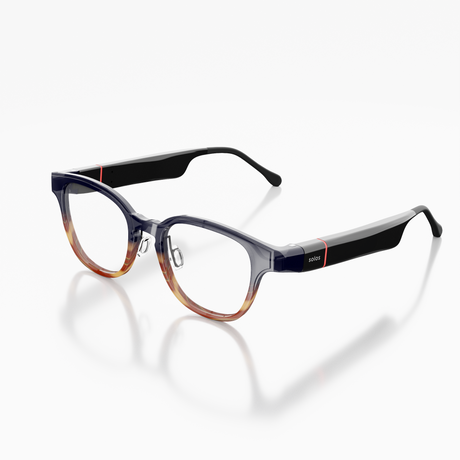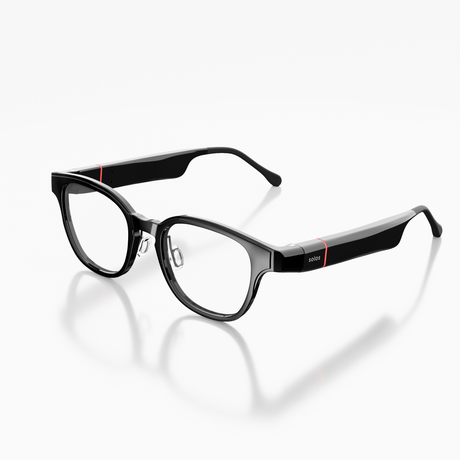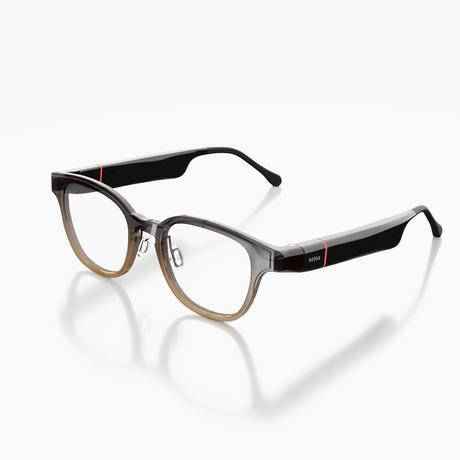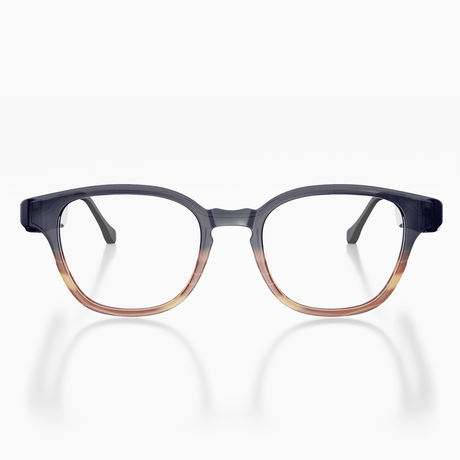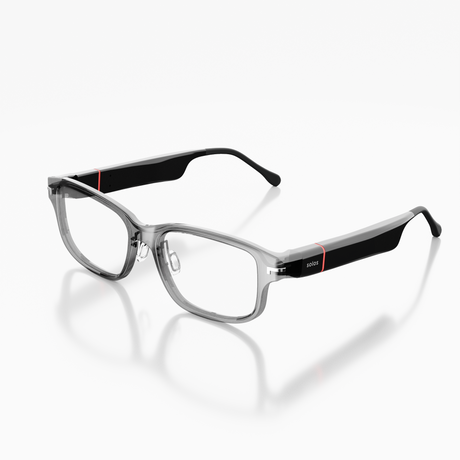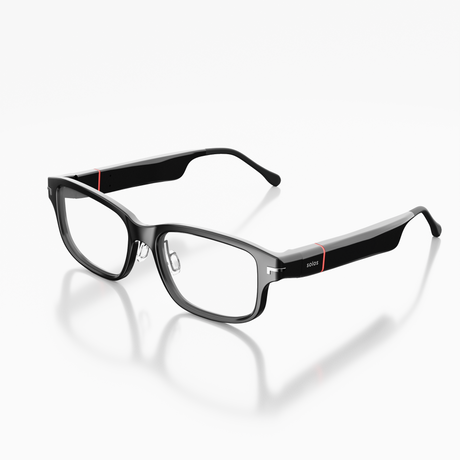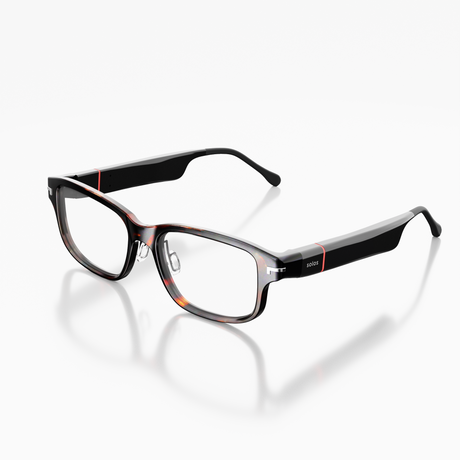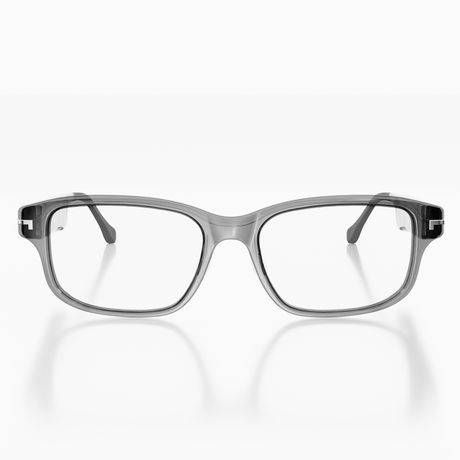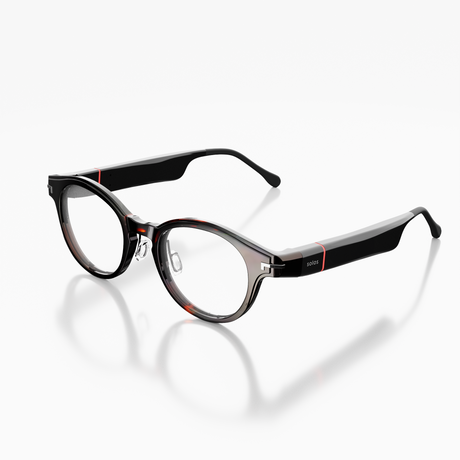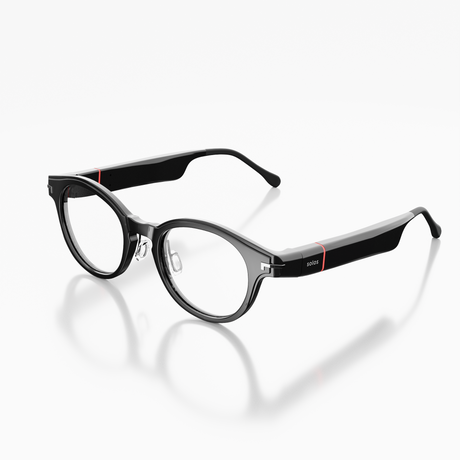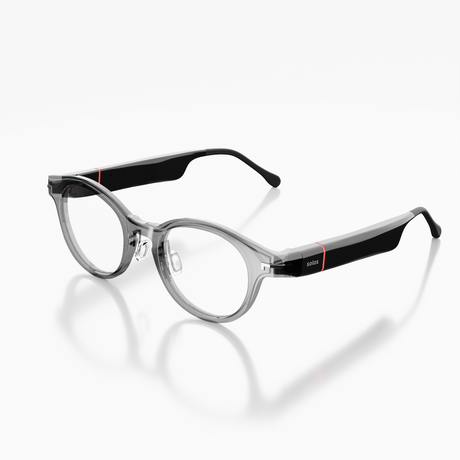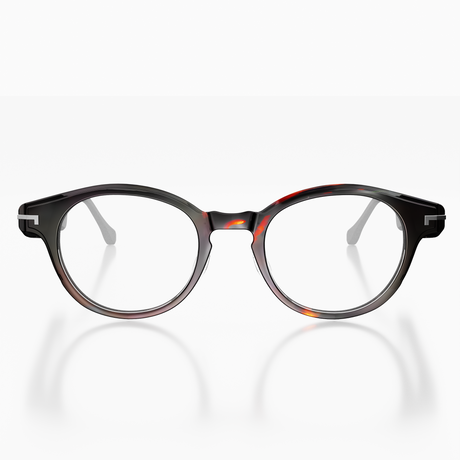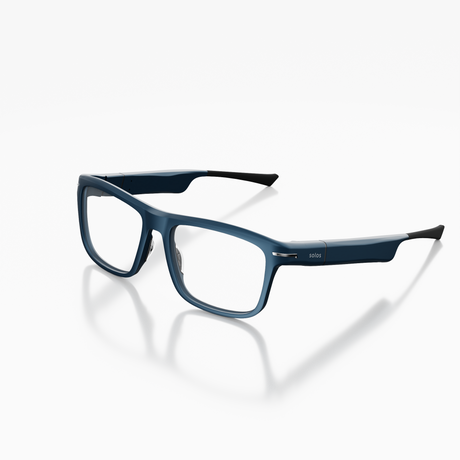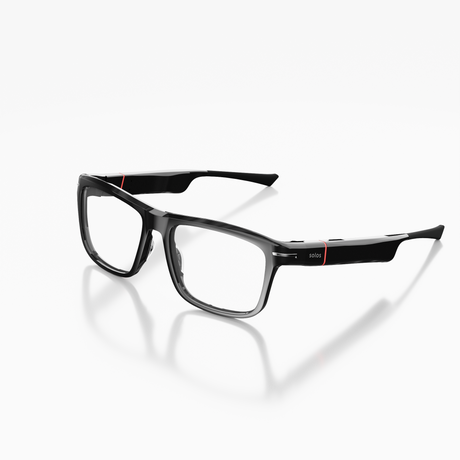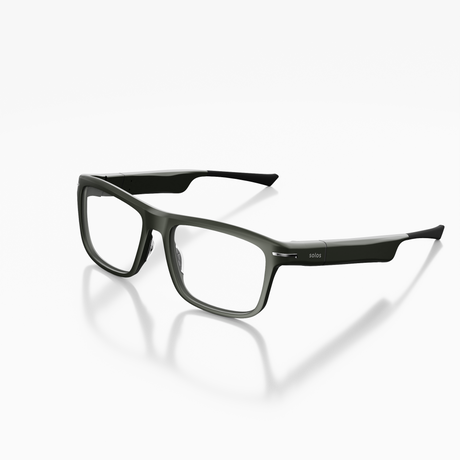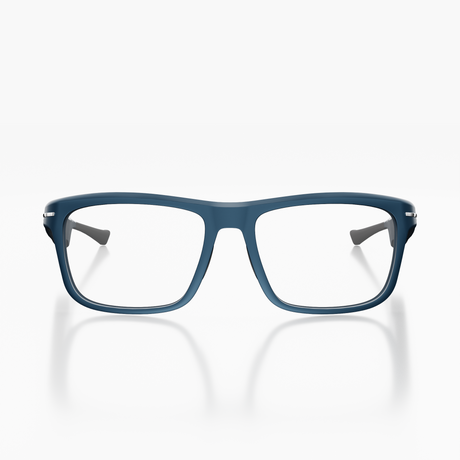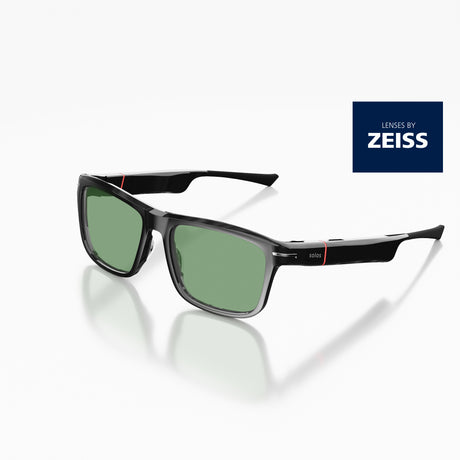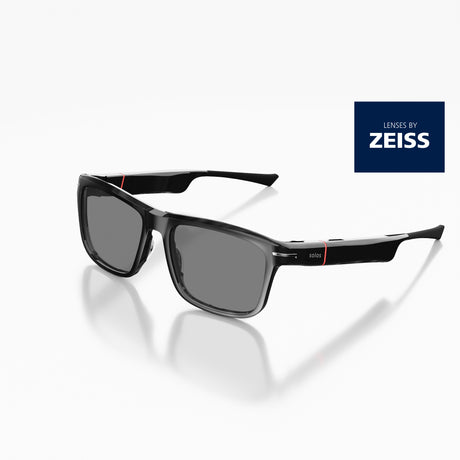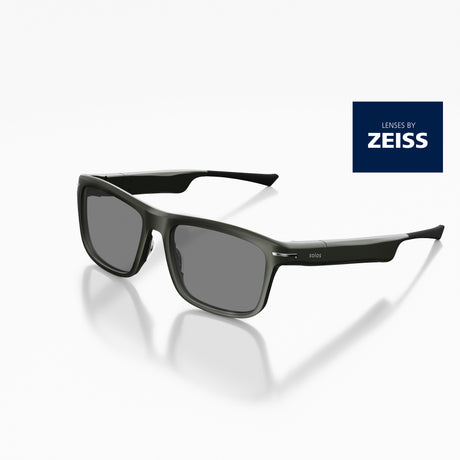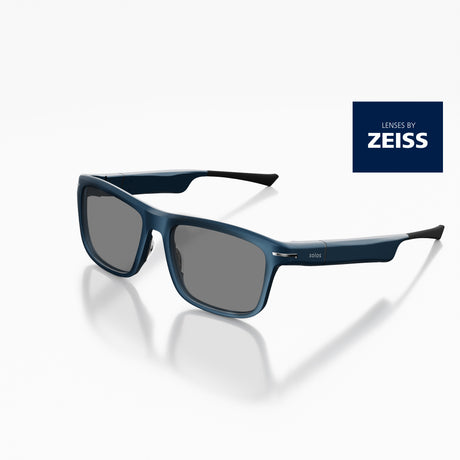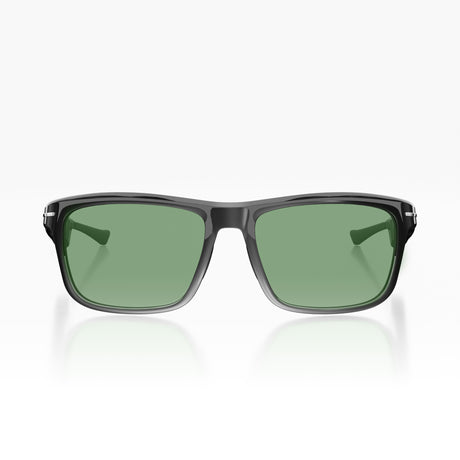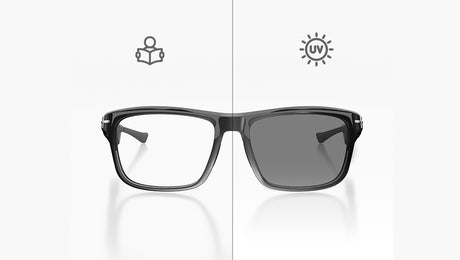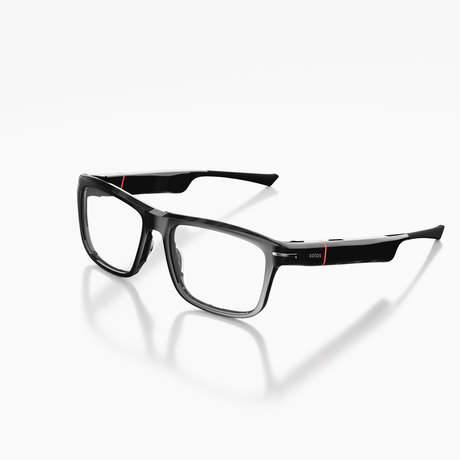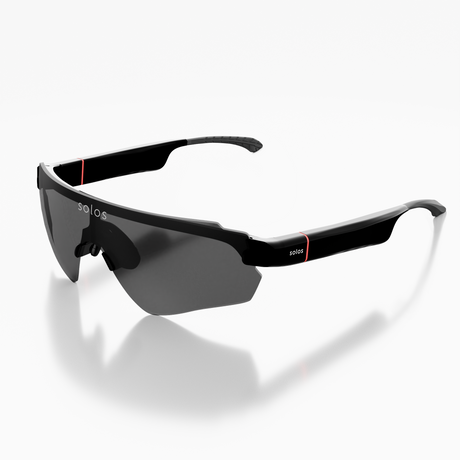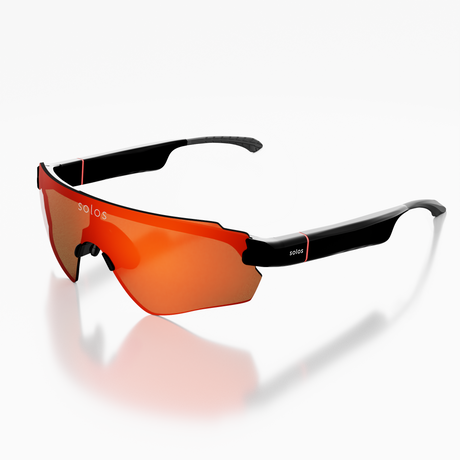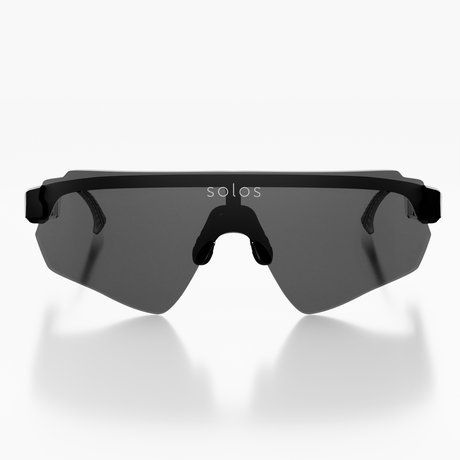Until you go to the Consumer Electronics Show in Las Vegas, held in January each year, you simply don’t know that you need special sensor-embedded socks that measure your stride length, calculate foot strike — and map your route.
But who doesn’t want to make staying healthy more convenient, effective, inexpensive and fun?
1. Hey, there’s a coach in your ear
Lumafit knows what you’re doing and, like a good coach, won’t let you cheat. With a heart rate and motion sensor built into an earpiece that the company says is more accurate than wrist-based monitoring, Lumafit dutifully counts every squat you do — until you don’t squat low enough. “Go lower,” read the words on the smartphone screen. Loaded with easy-to-follow workout programs that use line drawing depictions of exercises, this simple, efficient, interactive coaching system includes a fitness assessment test, recommends workouts and schedules, and tracks your progress over time. $149. lumafit.com
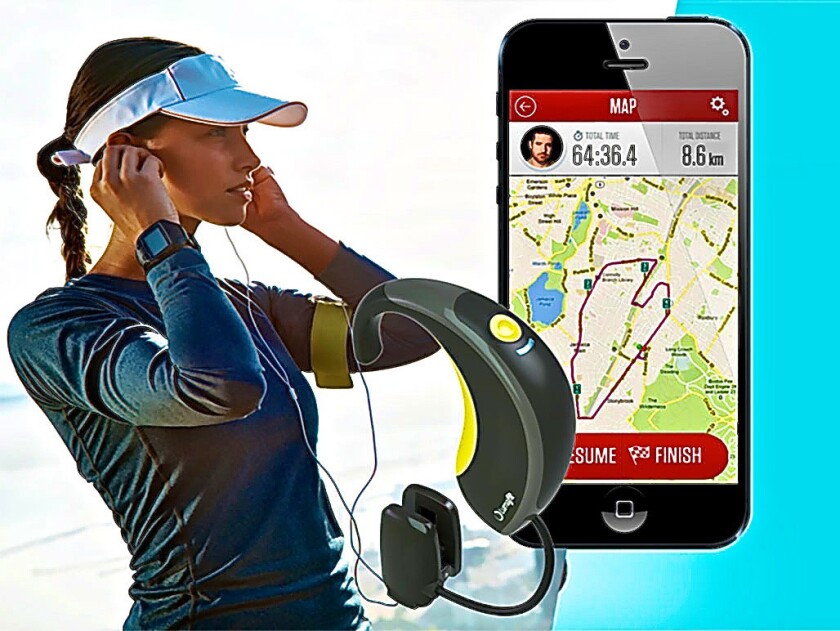
2. Bad habits … busted!
Russian physiologist Ivan Pavlov won a Nobel Prize for his work in classical conditioning, including training dogs to salivate when they hear a bell before a meal. The same conditioning reflex is behind the Pavlok watch, which helps you break bad habits — eating bad foods, smoking, nail biting, sleeping in — by emitting a mild-to-strong electric shock. This “aversive conditioning” is accomplished by motion sensors and GPS, which can detect when you have been inactive too long or turn into the parking lot of a McDonald’s. According to the company, bad habits can be changed in five days and 60% of offenders clean up their own act by pressing the lightning bolt on the top and shocking themselves. The intensity is adjustable but mild enough that no markings on skin remain. $169. pavlok.com
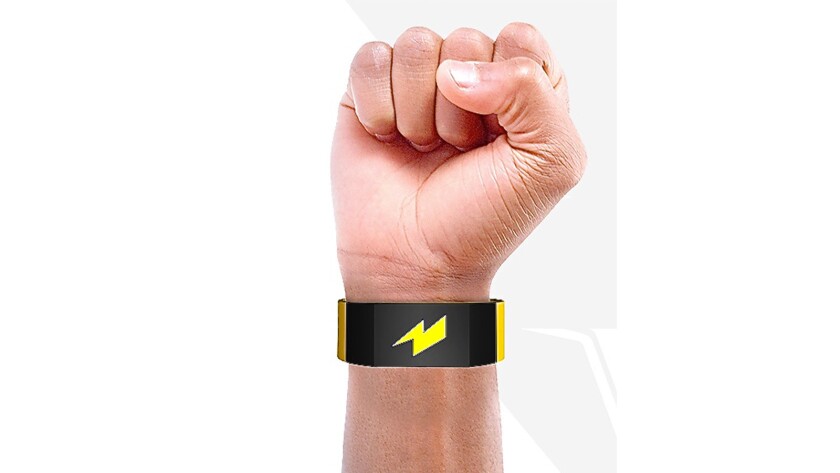
Pavlok is a watch that breaks bad habits -- eating, smoking, nail biting, sleeping in - with an electric shock.
3. The world’s smartest belt
Samsung’s WELT smart belt, a prototype that was one of the hits of CES, is a functional, normal-looking belt that will count your steps, measure your waist size (by gauging changes in tension) and record the amount of time you spend sitting down. Data is sent to a smartphone app that makes diet and exercise recommendations. The WELT, which stands for “wellness belt,” packs sensors in the back side of its buckle and a micro USB charge port on the side. No pricing or release date is available.
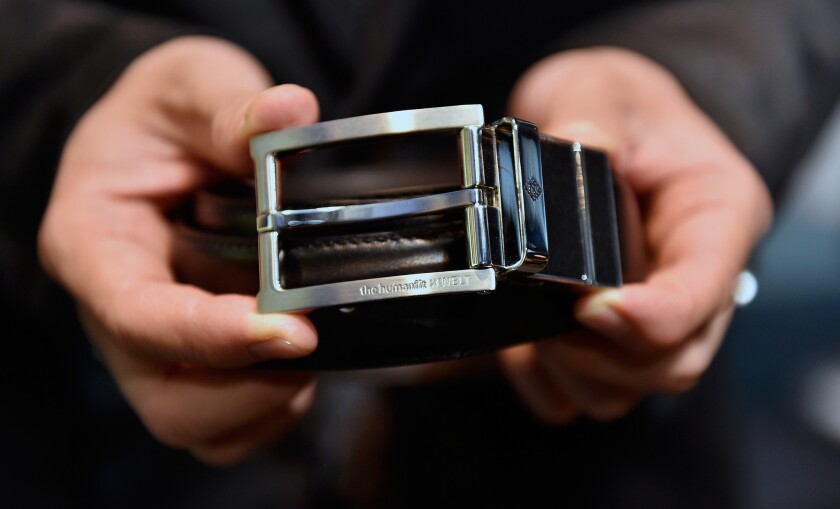
Samsung’s Welt, the smart belt that monitors the user’s waistline with an app, is displayed at the Samsung booth at CES 2016 at the Las Vegas Convention Center on January 6, 2016 in Las Vegas, Nevada.
4. Wait, you ate how many calories?!
Most people have no clue how many calories they consume at a meal. Spün (pronounced spoon) claims to provide an exact count with “smart” utensils — an electronic fork and spoon (not a knife, because it just cuts your food). How does it work? Take a picture of the food you plan to eat, use the Spün smartphone app to look it up, and then dig in. The company claims that as long as you don’t move or rearrange your plate, the motion, pressure and gesture-recognition detectors in the utensil handles will measure the exact weight of the food going into your mouth and instantly convert it to calories and percentages of fat, carbs and protein consumed. It also measures how quickly you ate, and will begin to make diet recommendations based on your eating patterns. $99. Spunutensils.com
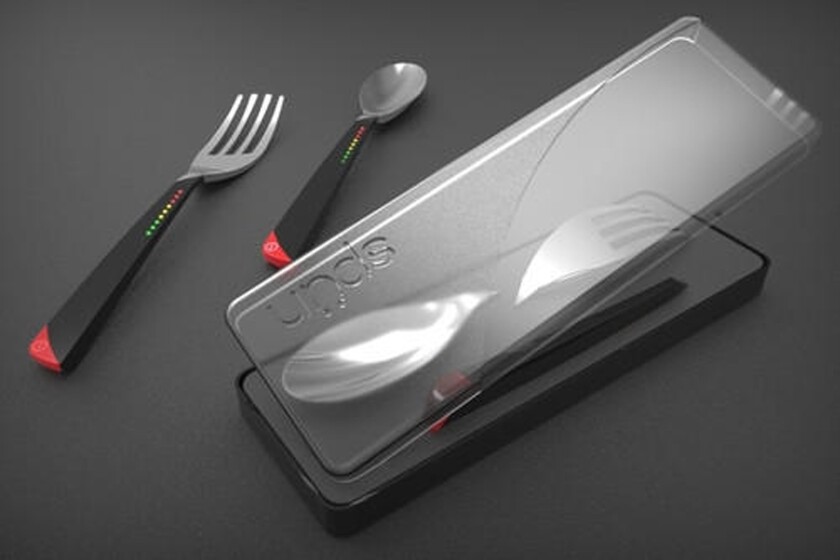
SPUN is a smart spoon and a fork that, with an app, counts the calories of the food you ate and breaks it down into % of fat, carbs, and protein. Spunutensils.com
5. Like Siri, for your sunglasses
Standard projection sunglasses, which project data on their lenses, are great for cyclists because they don’t have to take their eyes off the road to see speed, cadence, heart rate, mileage and other key metrics. Solos performance eyewear aims to improve on that experience with “Whisper” voice, which lets you keep your hands on the handlebar while scrolling through the data. Instead of pressing a button on the sunglass arm, just say “cadence” — and your cadence numbers appear on the lens. That’s safer, and faster. $500. solos-wearables.com
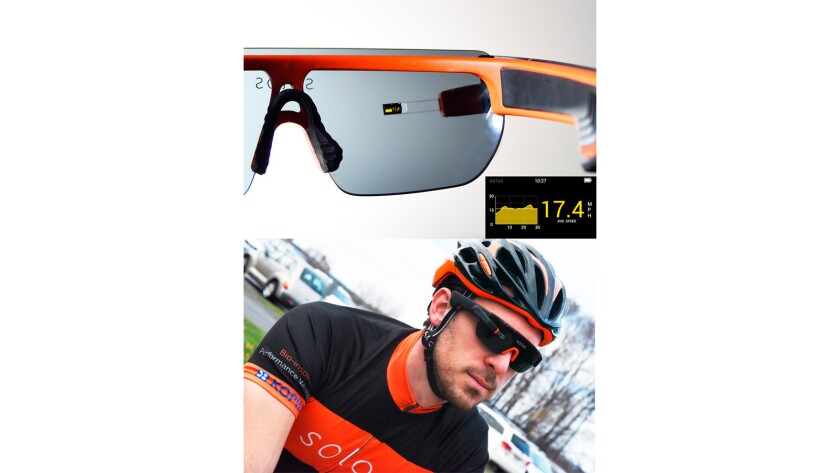
Solos Wearables smart sunglasseas are cycling sunglasses that project metrics on lens with voice activation -- a first.
6. No doctor’s co-pay required
The sticky, messy chest patches, gels and wires used to get an electrocardiogram — a.k.a. an EKG, the test that checks for problems with the heart’s electrical activity — are history. QardioCore replaces them with a portable, all-in-one, continuous EKG sensor that you snap in place yourself on a chest strap and wear under clothing. The app can share your data with your doctor, trainer and family. A boon for at-risk people and athletes, the thin, 4-by-7-inch waterproof device also measures additional heart-health metrics like respiration, body temperature, stress level, and heart-rate variability. $449. getqardio.com

7. Geek chic
If you’re a data geek but don’t want to look like one, the Misfit Ray is the answer. This stylish fitness monitor and sleep tracker looks like a New Age bracelet, not a watch, with the electronics tucked invisibly inside a faceless, brushed-aluminum cylinder that sends data to your smartphone. It gives you steps, quality and length of sleep; tracks running, cycling, swimming, distance and calories burned. It also works as an alarm clock, and buzzes you if you sit too long. Misfit says the Ray is water-resistant to 50 meters and will hold a charge for an amazing six months. $99.99 misfit.com
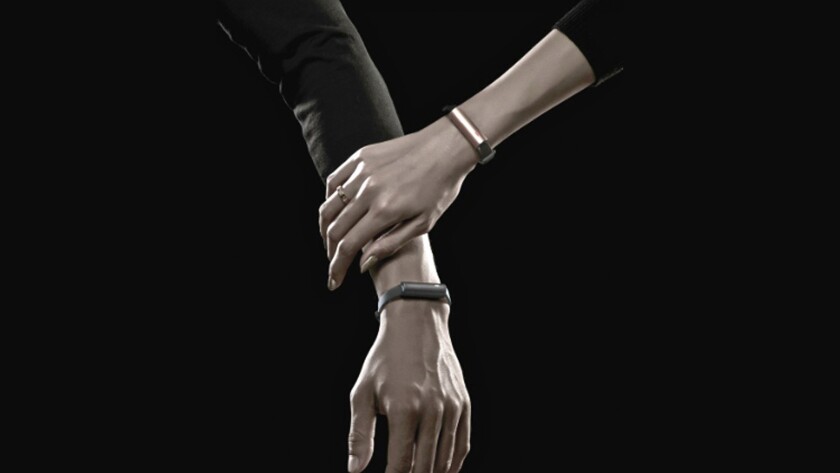
MisFit Ray, uniquely stylish fitness monitor activity and sleep tracker with groundbreaking 6-month charge. Looks like a cool bracelet, not a watch and sells for $99.
8. Cough, cough
This wearable air-quality tracker tell you just how polluted the air is — so you can go run or ride in a cleaner part of town. Starting at $99.99. TZOA.com
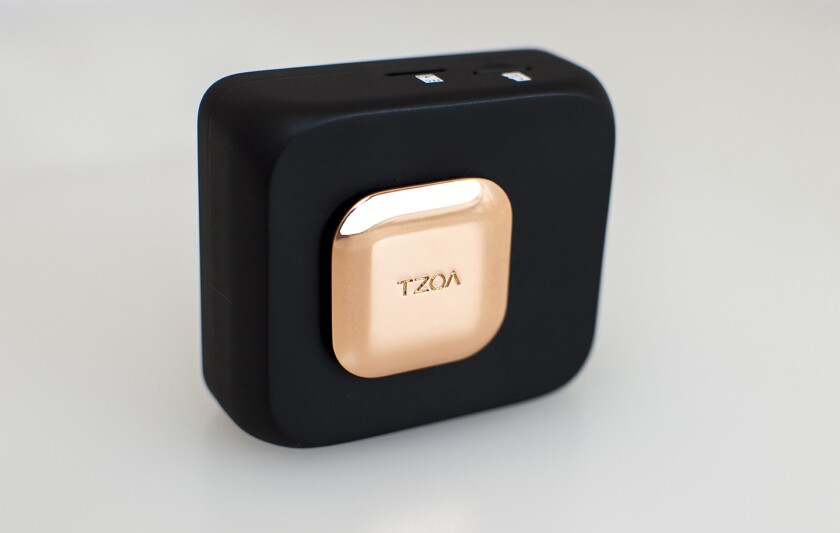
This wearable air quality tracker tell you just how polluted the air is -- so you can go run or ride in a cleaner part of town.
9. This is one bright lighter
The Quitbit lighter motivates you to quit smoking by displaying how much you’ve already smoked that day, and gives you a quit-smoking plan. $129. quitbitlighter.com
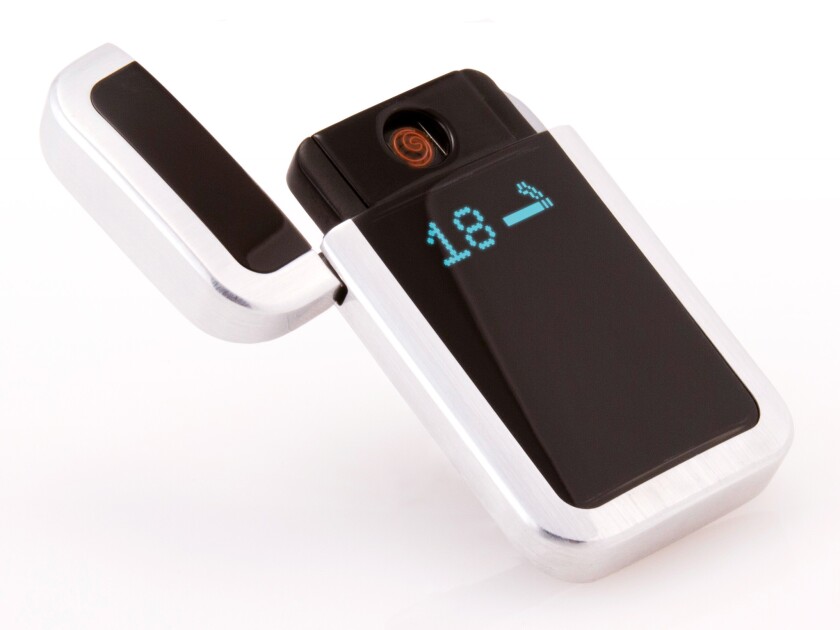
The Quitbit lighter motivates you to quit smoking by displaying how much you’ve already smoked that day, and gives you a quit-smoking plan.
10. Don’t lose these in the washer
Sensoria’s smart socks come with embedded sensors and GPS that tell runners/walkers how their feet are landing — heel or forefoot? Normal or over-pronation? — and also provide cadence and map your route. (And yes, they are machine washable.) Two pairs, $49. sensoriafitness.com
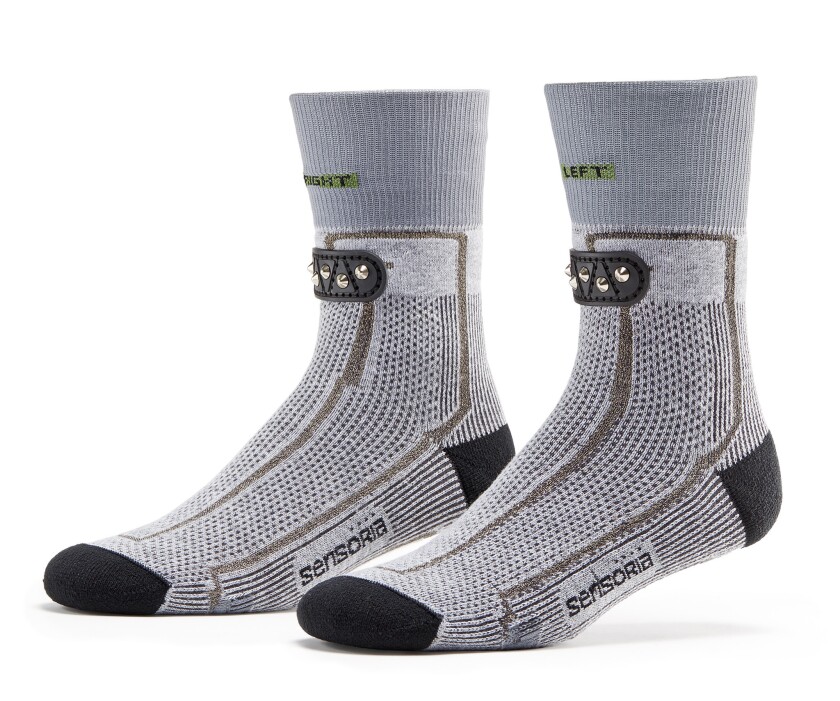
Sensoria’s smart socks come with embedded sensors and GPS that tell runners/walkers how their feet are landing—heel or forefoot? Normal or over-pronation? – and also provides cadence and maps your route.
11. Cutting-edge clothing
A line of sensor-embedded tank tops and long-sleeve shirts that provide feedback on your heart rate, breathing, activity levels, recovery and sleep quality. Starting at $149. Hexoskin.com

A line of sensor-embedded tank tops and long sleeve shirts that provide feedback on your heart rate, breathing, activity levels, recovery and sleep quality.


